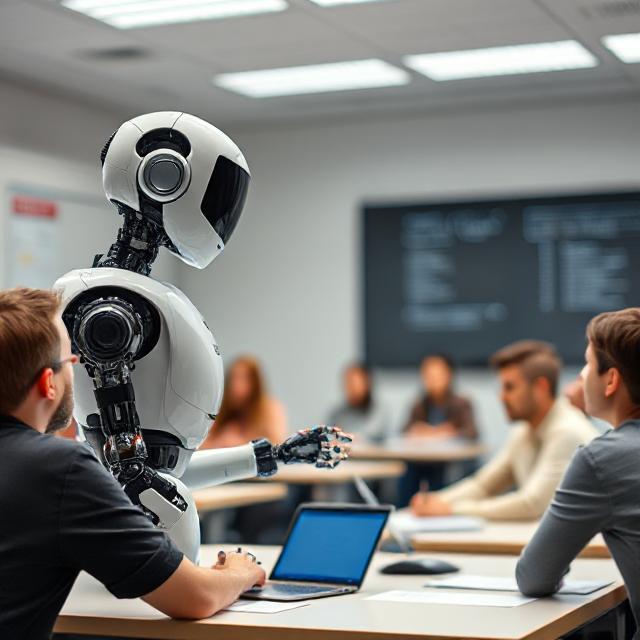Artificial Intelligence (AI) is rapidly transforming how training and education are delivered across industries, and its role in the future will be even more significant. As technology continues to evolve, AI-powered training systems will become more personalized, efficient, and accessible, fundamentally reshaping the learning experience for individuals and organisations alike. Is AI the Future of Training?
One of the most transformative aspects of AI in training is personalisation. Traditional training methods often follow a one-size-fits-all approach, which fails to account for the diverse learning styles, speeds, and backgrounds of individuals. AI systems, however, can analyse learner data in real time—such as progress rates, quiz scores, and engagement metrics—to tailor content to each individual. This adaptive learning ensures that trainees receive instruction that aligns with their current knowledge level and learning preferences, increasing retention and engagement.
Another major advantage AI brings to training is real-time feedback and assessment. Instead of waiting for a human instructor to review performance, AI can instantly evaluate a learner’s work and provide constructive feedback. For example, in language learning apps, AI can detect pronunciation errors and offer corrections immediately. In more complex domains, such as coding or data analysis, AI can suggest improvements to code or flag inefficient algorithms. This rapid feedback loop accelerates learning and helps users correct mistakes before they become habits.
Technology
AI also enables immersive and interactive training experiences through technologies like virtual reality (VR) and augmented reality (AR). When combined with AI, these tools can simulate real-world environments and dynamically respond to a learner’s actions. For instance, medical students can practice surgical procedures in a VR simulation where the AI monitors their decisions and guides them through best practices. Similarly, customer service representatives can interact with AI-driven avatars to simulate challenging conversations, improving their interpersonal and problem-solving skills in a risk-free environment.
In the corporate world, AI will be essential for upskilling and reskilling employees to keep pace with the fast-changing job market. AI can analyze workforce trends, company goals, and individual employee profiles to recommend relevant training programs. This predictive capability ensures that companies can proactively prepare their workforce for future demands rather than reactively addressing skill gaps. Moreover, AI-driven training platforms can automate administrative tasks such as scheduling, tracking progress, and reporting, allowing human trainers to focus on mentorship and strategic development.
Language translation and accessibility will also see substantial improvements through AI. For global organisations, AI-powered translation tools can make training materials available in multiple languages almost instantly, reducing barriers for non-native speakers. Similarly, AI can generate captions, transcriptions, and even sign language interpretations, making training more inclusive for individuals with disabilities.
Continuous Learning
AI also supports continuous learning, a crucial component of modern professional development. Through machine learning algorithms, training systems can identify when learners are ready to move on to the next topic or need additional reinforcement. This creates a more fluid and dynamic learning path, enabling users to build knowledge at their own pace over time. With AI, learning becomes a lifelong, adaptive journey rather than a static, time-bound event.
While AI will not completely replace human instructors, it will complement and enhance their capabilities. Instructors will increasingly take on roles as facilitators and mentors, using AI-generated insights to provide targeted support and guidance. The synergy between human judgment and AI precision will produce more effective training outcomes.
The future
In conclusion, AI will play a pivotal role in the future of training by making it more personalized, interactive, and scalable. From corporate environments to educational institutions, AI will drive a shift toward more intelligent, inclusive, and efficient learning ecosystems. As these technologies mature, they will unlock new possibilities for skill development and knowledge transfer across every sector of society.









Leave a Reply